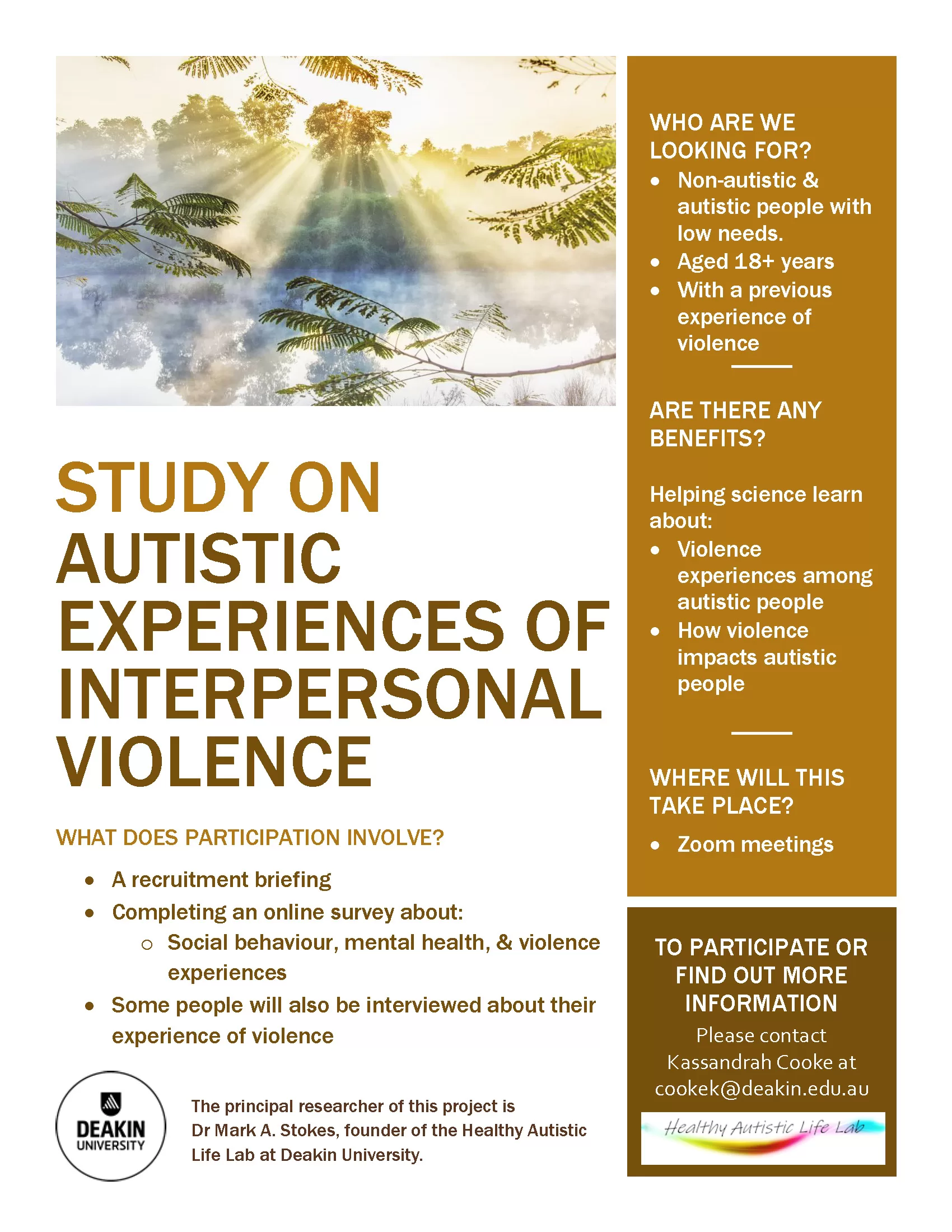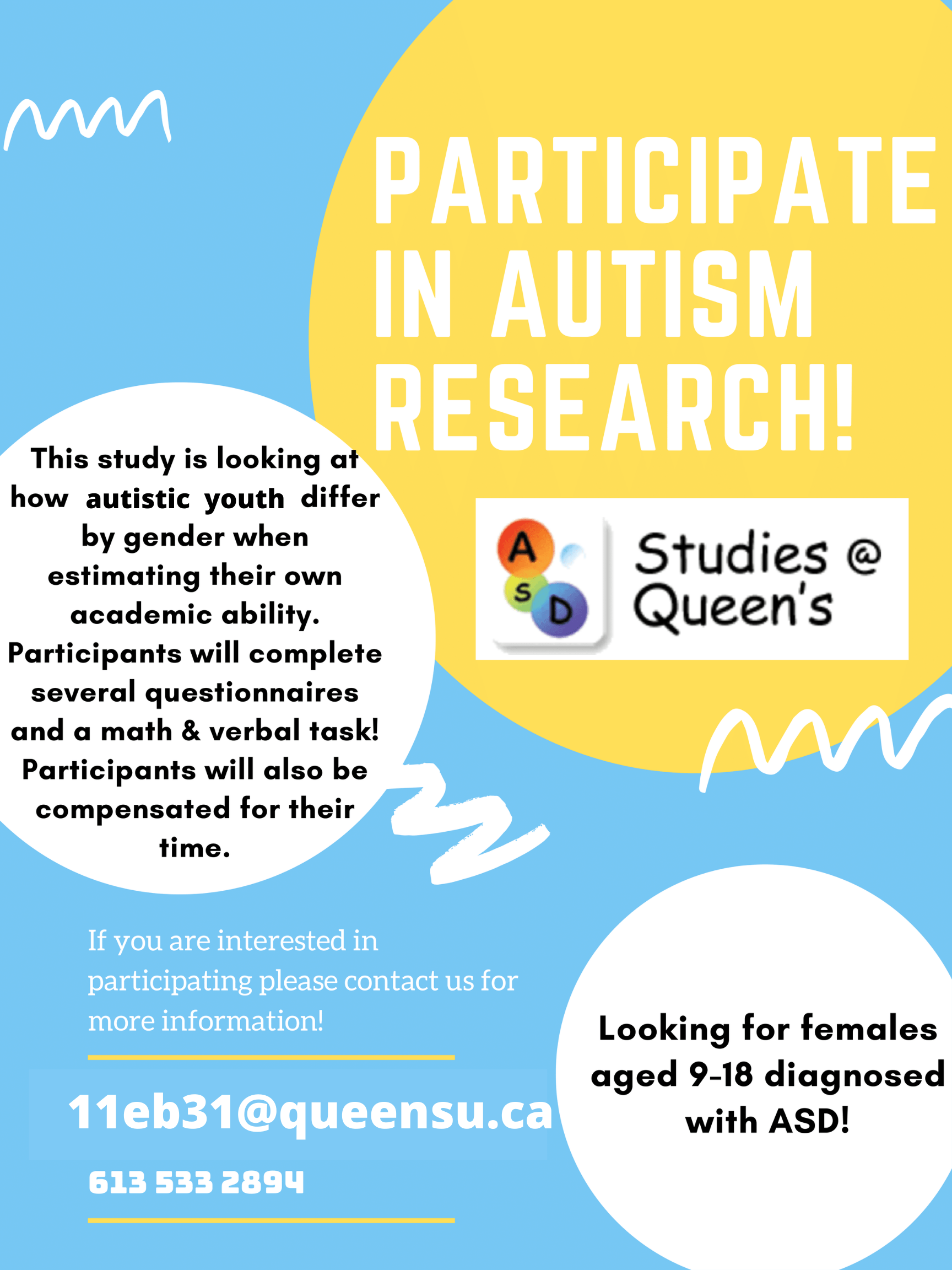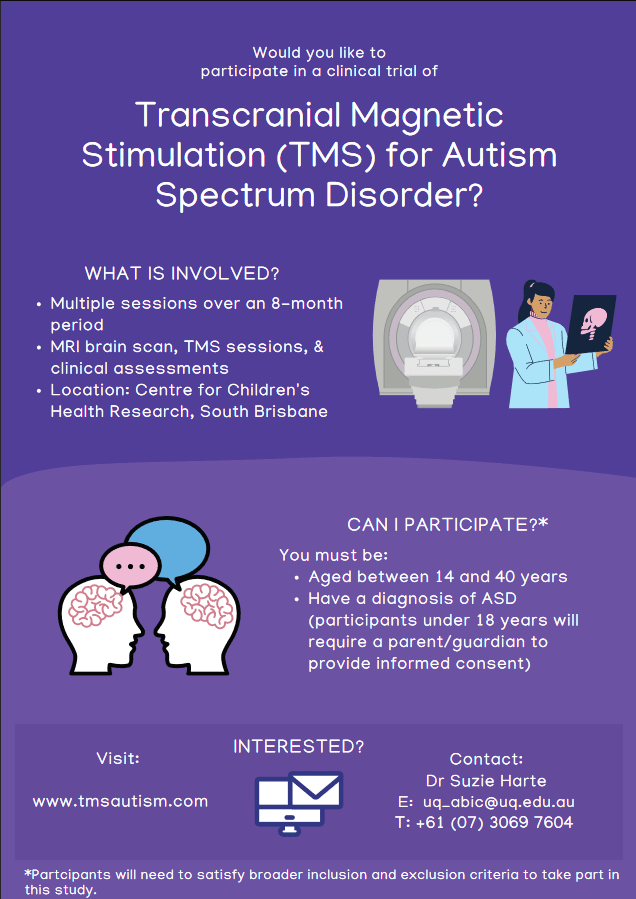Deakin University
VICTORIA, AUSTRALIA
What does participation involve?
A recruitment briefing and completing online surveys. Some people will also be interviewed about their experience of violence.
Non-autistic and autistic people with low needs. Ages 18+ with previous experience of violence.
All research will take place online via Zoom
If you are interested in participating in this study please contact the organiser for more information.



